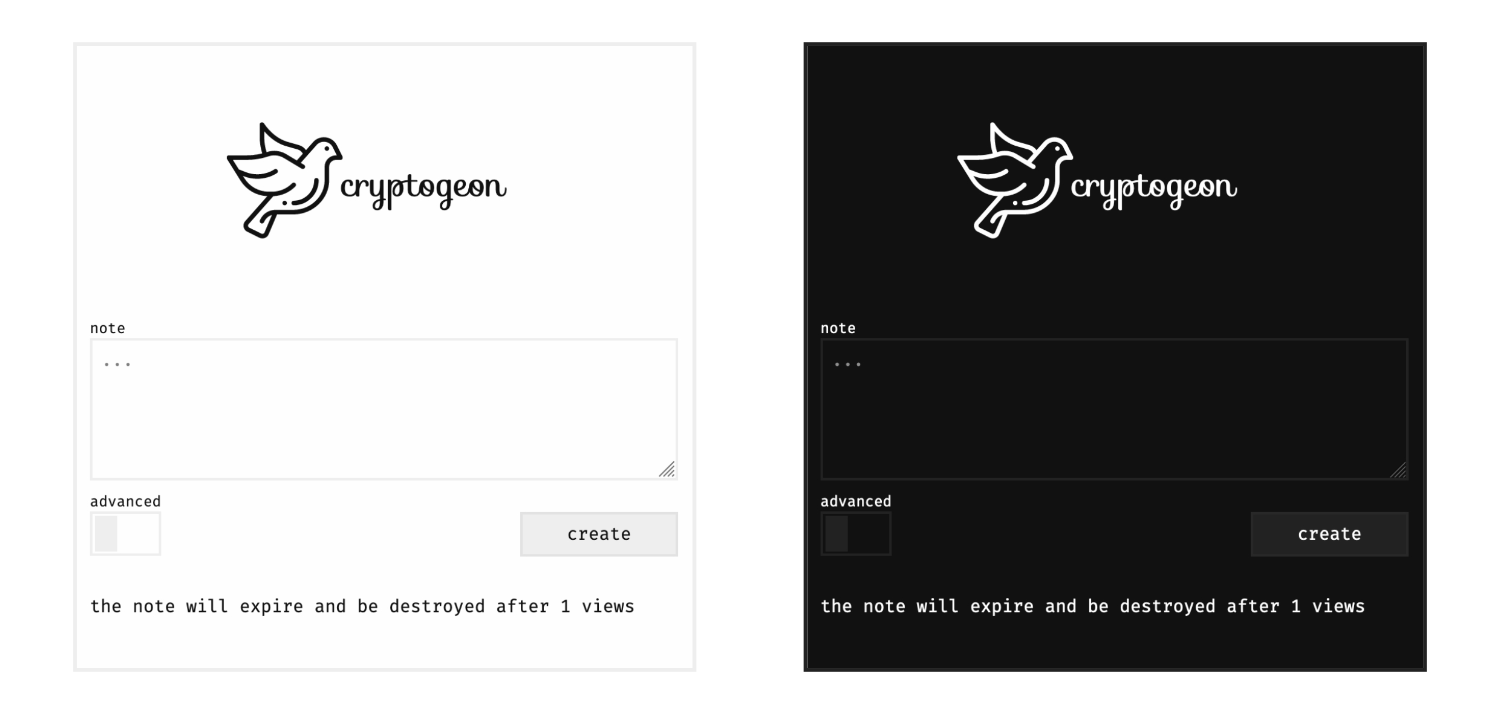mirror of
https://github.com/cupcakearmy/cryptgeon.git
synced 2026-02-25 00:29:13 +00:00
a462bed948e11e1d2a285043388da91c1ddd9fd4
About?
cryptgeon is a secure, open source sharing note service inspired by PrivNote
Demo
Check out the demo and see for yourself https://cryptgeon.nicco.io.
Features
- server cannot decrypt contents due to client side encryption
- view and time constraints
- in memory, no persistence
- obligatory dark mode support
How does it work?
each note has a 512bit generated id that is used to retrieve the note. data is stored in memory and never persisted to disk.
Screenshot
Deployment
ℹ️ https is required otherwise browsers will not support the cryptographic functions.
Docker is the easiest way. There is the official image here.
# docker-compose.yml
version: '3.7'
services:
memcached:
image: memcached:1-alpine
entrypoint: memcached -m 128 # Limit to 128 MB Ram, customize at free will.
app:
image: cupcakearmy/cryptgeon:latest
depends_on:
- memcached
ports:
- 80:5000
Development
- Clone
- run
npm iin the root and and clientclient/folders. - Run
npm run devto start development.
Running npm run dev in the root folder will start the following things
- a memcache docker container
- rust backend with hot reload
- client with hot reload
You can see the app under localhost:3000.
Attributions
Icons made by freepik from www.flaticon.com
Languages
Svelte
44.5%
TypeScript
30.6%
Rust
14.7%
JavaScript
7%
CSS
2.3%
Other
0.9%




